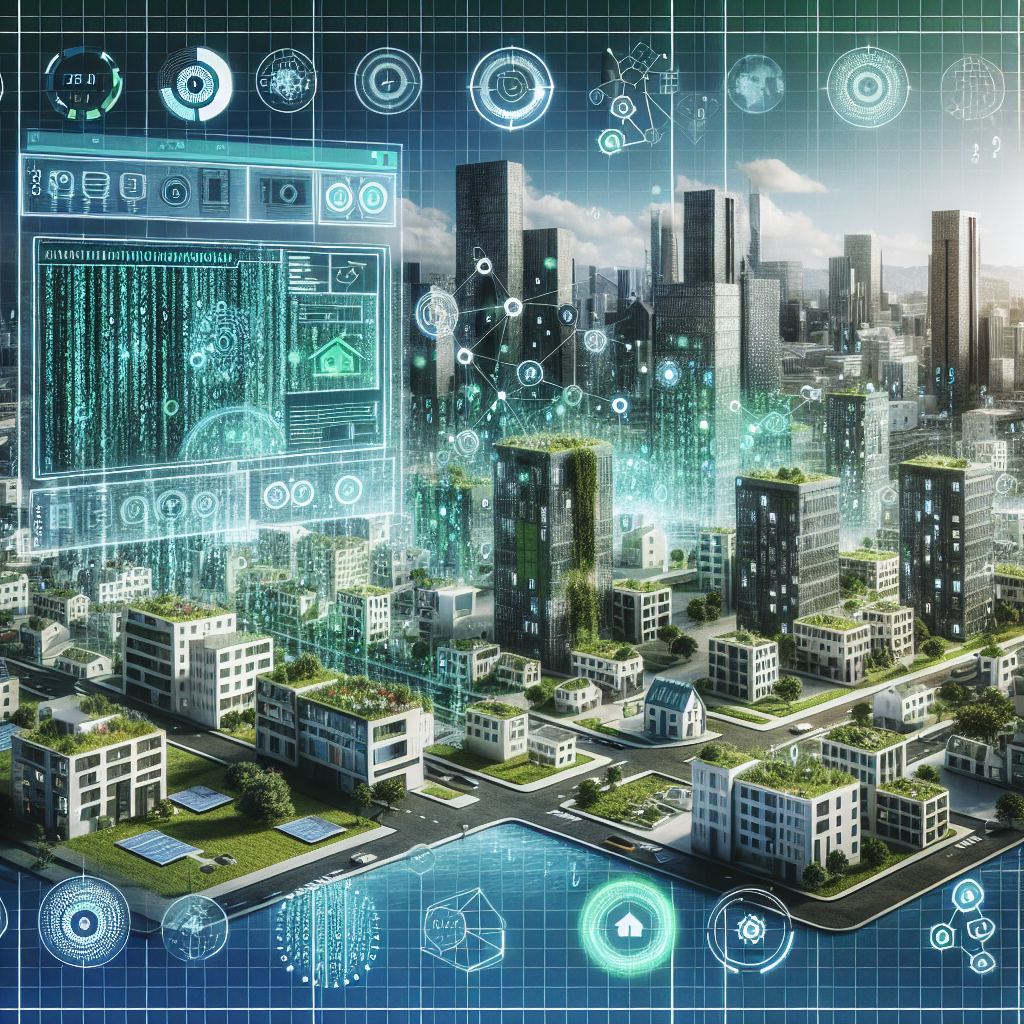AI Applications in Sustainable Building Design and Construction
Artificial Intelligence (AI) is revolutionizing the way we design and construct buildings, especially when it comes to sustainability. Sustainable building design and construction are becoming increasingly important as the world faces environmental challenges such as climate change and resource depletion. AI technologies are helping architects, engineers, and construction teams to create more sustainable and energy-efficient buildings by optimizing design, materials selection, and construction processes. In this article, we will explore some of the key AI applications in sustainable building design and construction.
1. Energy Modeling and Optimization
One of the key areas where AI is making a significant impact in sustainable building design is energy modeling and optimization. AI algorithms can analyze vast amounts of data to predict building energy consumption, identify energy-saving opportunities, and optimize building performance. By using AI-powered energy modeling tools, architects and engineers can design buildings that are more energy-efficient, reducing carbon emissions and operating costs.
2. Material Selection
Another important aspect of sustainable building design is material selection. AI technologies can help architects and engineers to identify sustainable materials that are environmentally friendly, energy-efficient, and cost-effective. AI algorithms can analyze the environmental impact of different building materials, such as embodied carbon emissions, energy consumption, and recyclability, to help designers make informed decisions about material selection.
3. Generative Design
Generative design is a powerful AI technology that enables architects and engineers to explore a vast number of design options and find the most optimal solutions. By using generative design algorithms, designers can quickly generate and evaluate multiple design alternatives based on specific parameters such as energy efficiency, daylighting, and thermal comfort. This can help designers to create innovative and sustainable building designs that meet the project’s goals and requirements.
4. Construction Planning and Optimization
AI technologies are also being used to optimize construction processes and improve project efficiency. By analyzing historical data and real-time information, AI algorithms can help construction teams to schedule tasks, allocate resources, and identify potential risks and delays. This can help to streamline construction workflows, reduce waste, and improve project outcomes.
5. Building Performance Monitoring
Once a building is constructed, AI technologies can be used to monitor its performance and identify opportunities for improvement. By collecting and analyzing data from sensors and building management systems, AI algorithms can provide insights into energy consumption, indoor air quality, occupant comfort, and maintenance needs. This information can help building owners and operators to optimize building performance, reduce operating costs, and enhance occupant satisfaction.
FAQs
Q: How can AI help to reduce carbon emissions in building construction?
A: AI technologies can help architects and engineers to design more energy-efficient buildings by optimizing design, material selection, and construction processes. By analyzing data and predicting energy consumption, AI algorithms can identify opportunities to reduce carbon emissions and improve building performance.
Q: What are some examples of AI applications in sustainable building design?
A: Some examples of AI applications in sustainable building design include energy modeling and optimization, material selection, generative design, construction planning, and building performance monitoring. These AI technologies can help architects and engineers to create more sustainable and energy-efficient buildings.
Q: How can AI technologies improve construction project efficiency?
A: AI technologies can optimize construction processes by analyzing historical data, real-time information, and project parameters. By scheduling tasks, allocating resources, and identifying risks and delays, AI algorithms can help construction teams to streamline workflows, reduce waste, and improve project outcomes.
Q: How can building owners benefit from AI-powered building performance monitoring?
A: Building owners can benefit from AI-powered building performance monitoring by optimizing building performance, reducing operating costs, and enhancing occupant satisfaction. By collecting and analyzing data from sensors and building management systems, AI algorithms can provide insights into energy consumption, indoor air quality, occupant comfort, and maintenance needs.
In conclusion, AI technologies are playing a crucial role in advancing sustainable building design and construction. By leveraging AI-powered tools and algorithms, architects, engineers, and construction teams can create more energy-efficient, environmentally friendly, and cost-effective buildings. As the demand for sustainable buildings continues to grow, AI applications will become increasingly important in shaping the future of the construction industry.

